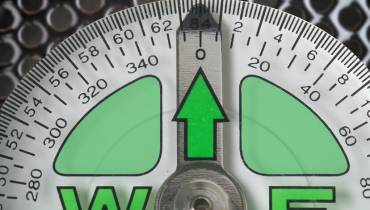Morning vs. Evening Hunts: 3 Pros & Cons
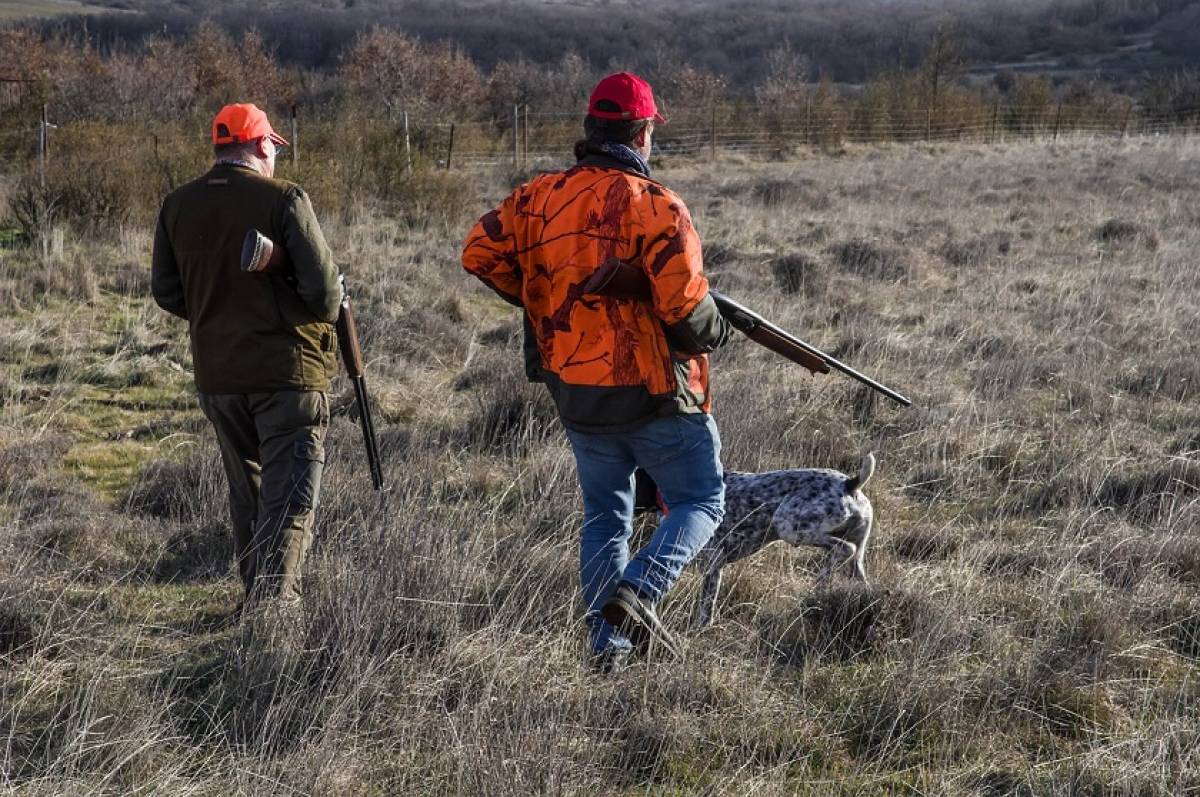
As much as you may want to, you can’t be out in the field every second of hunting season. Life’s obligations — things like work, chores and family — take precedence over hunting.
Whether you’re hunting fowl, deer or big game from your hunting blind, animals are typically more active in the dawn and dusk when it’s more comfortable and safer for them to move around.
Unfortunately, staying out in your blind all day is often not feasible, and hunters often have to choose between a morning hunt or an evening hunt.
There are pros and cons to hunting at either time of day.
Dawn Hunting: Pros
Sunrise in the woods is a memorable moment. When you prepare for a hunt at dawn, you get to see the woods wake up — birds stirring and starting to sing, light filtering through the branches and, hopefully, the telltale sounds of prey picking their way through the trees.
Besides being a beautiful time of day, there are other reasons why hunting in the early morning hours is optimal.
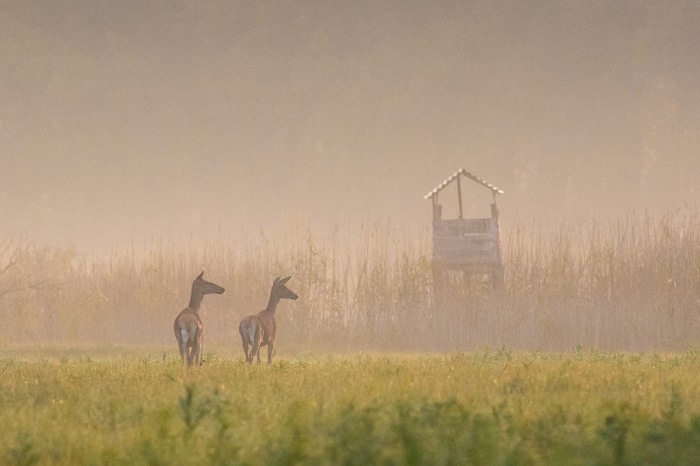
Source: Geza Farkas/Shutterstock.com
i. You Learn More About the Area
When you are in the woods for the sunrise, you can glean crucial information from the surrounding environment that will help you if you decide to revisit your hunting grounds at a future date.
Deer paths, buck signs and bedding areas are all telltale signs that you’re on the right trail.
ii. You Can Get Close to Bedding Areas
One of the significant benefits of hunting in the early morning is that you can sneak up close to bedding areas in a way that you can’t when you hunt in the evening hours.
If the bucks are in a rut, they’ll be wandering into their bedding areas around dawn, and you’ll have a crack at them before they know what hit them.
iii. Birds Are Active
Birds are usually up and about with the sun, and that’s good news for hunters. Ducks typically wake up at dawn, with geese, who are later risers, following closely behind them.
Morning Hunts: Cons
It may sound ideal, but there are some downsides to morning hunts. If you like to hunt in the early morning hours, you will need to vary your spots, set multiple alarms and time it right.
i. Light Winds
In some areas, winds only pick up in mid-morning, which means any feathered prey may keep close to shore. Near large bodies of water, light wind limits birds’ movements.
There’s another disadvantage to this scenario; if the wind finally picks up but from the wrong direction, your prey may be alerted to your presence and your cover blown.
ii. You Have to Time It Right
You don’t want to ruin any prime hunting spots by accessing them too much.
If you get to your hunting spot too late or aren’t careful on your entrances or egresses, you could alert your prey to your presence and ruin the area for good.
iii. You Have to Get Up Early
It can be taxing to get up at 3:30 a.m. to sit on a hunting seat, no matter how comfy. If you aren't a morning person, you may find that getting up super early to get to your blind by sun-up is too much to ask.
It can also affect your focus and attentiveness once you’re in the blind.
Dusk Hunting: Pros
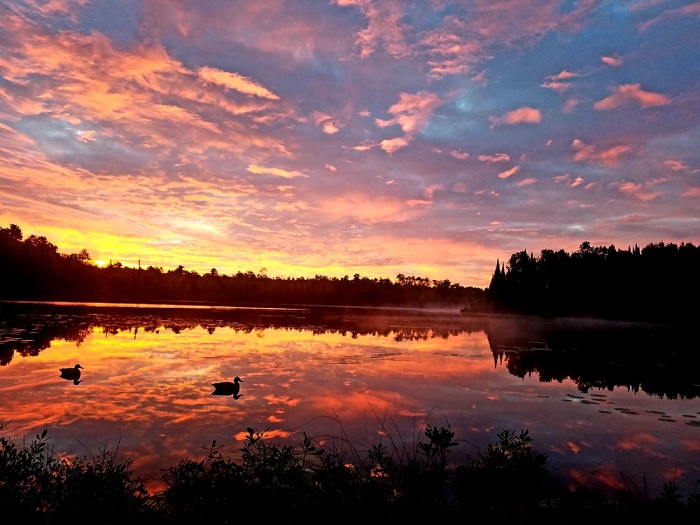
Source: Viereck/Shutterstock.com
When temps cool and the sun goes down, the prime hunting period for many begins. Not only is it more convenient than a very early morning hunt, but there are other benefits to hunting in the gloaming.
i. Harder to Spook Prey
Hunters often find that they’re less liable to scare the animals if they hunt big or small game if they go hunting in the evening.
Whether it’s geese, duck, rabbit or deer, all these animals are fixated on one thing at this time of the day: food.
All they want to do is find an evening repast and retire to their chosen warren, roost or bedding. Hunting prey in the evening may mean they are less attentive to their surroundings.
ii. More Prey Than in the Morning
Many hunters find that they see more game in the evening than in the early hours. Ducks and geese are more active as temps drop, hitting feeding areas before settling down to roost.
Deer, especially at the tail end of the season, focus on one thing when they get up in the evening — food.
iii. You’re More Alert
Unless you are a superhuman morning person, you will probably be less groggy and more focused in the evening than when you hunt in the morning.
Getting up at 3 a.m. will make anyone, except those most hardened to the night shift, bleary-eyed and muddled. You stand better chances of shooting with a clear head if you hunt in the evening.
Evening Hunts: Cons
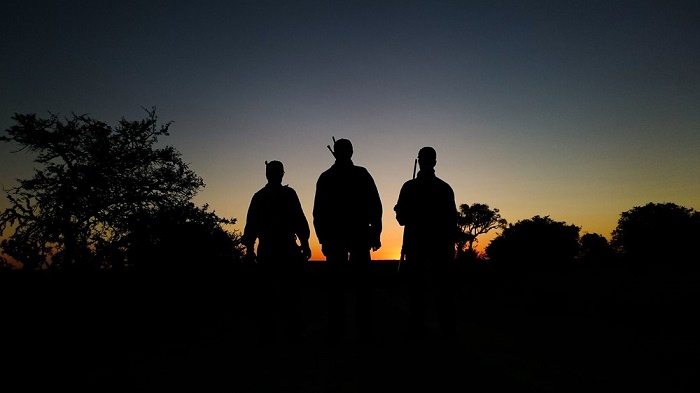
Source: Stephan Dreyer/Shutterstock.com
Hunting in the evening isn’t for everyone. When you head out as the sun sets, you may find crowded hunting grounds, low visibility and a smaller window in which to bag a trophy.
i. More Hunters Mean Less Prey
Many people resist getting up at three in the morning to hunt, and they opt for after school or work instead. This means there will be more hunters in the evening than there are in the morning.
ii. Tracking in the Dark
Deer’s primary sense is their sense of smell. Humans, however, rely mainly on their sight. If you hunt in the evening, the light will drain out of the landscape and leave you tracking your prey in the dark when it is much more challenging to follow a blood trail.
iii. Shorter Time to Hunt
You only have a short amount of time to bag your prey when you hunt in the evening. Depending on the season and your location, it can take between 70-100 minutes for it to become completely dark after sunset.
In Conclusion
It’s an age-old debate — is it more successful to hunt during the morning or in the evening? There are pros and cons to each option.
However, in the end, it is invariably a subjective choice. If you like the still of the dawn and don’t mind getting up early, a morning hunt may be ideal.
Then again, you may appreciate the reliability of hunting in the evening when all the prey wants to do is eat before they bed down or rut.




















